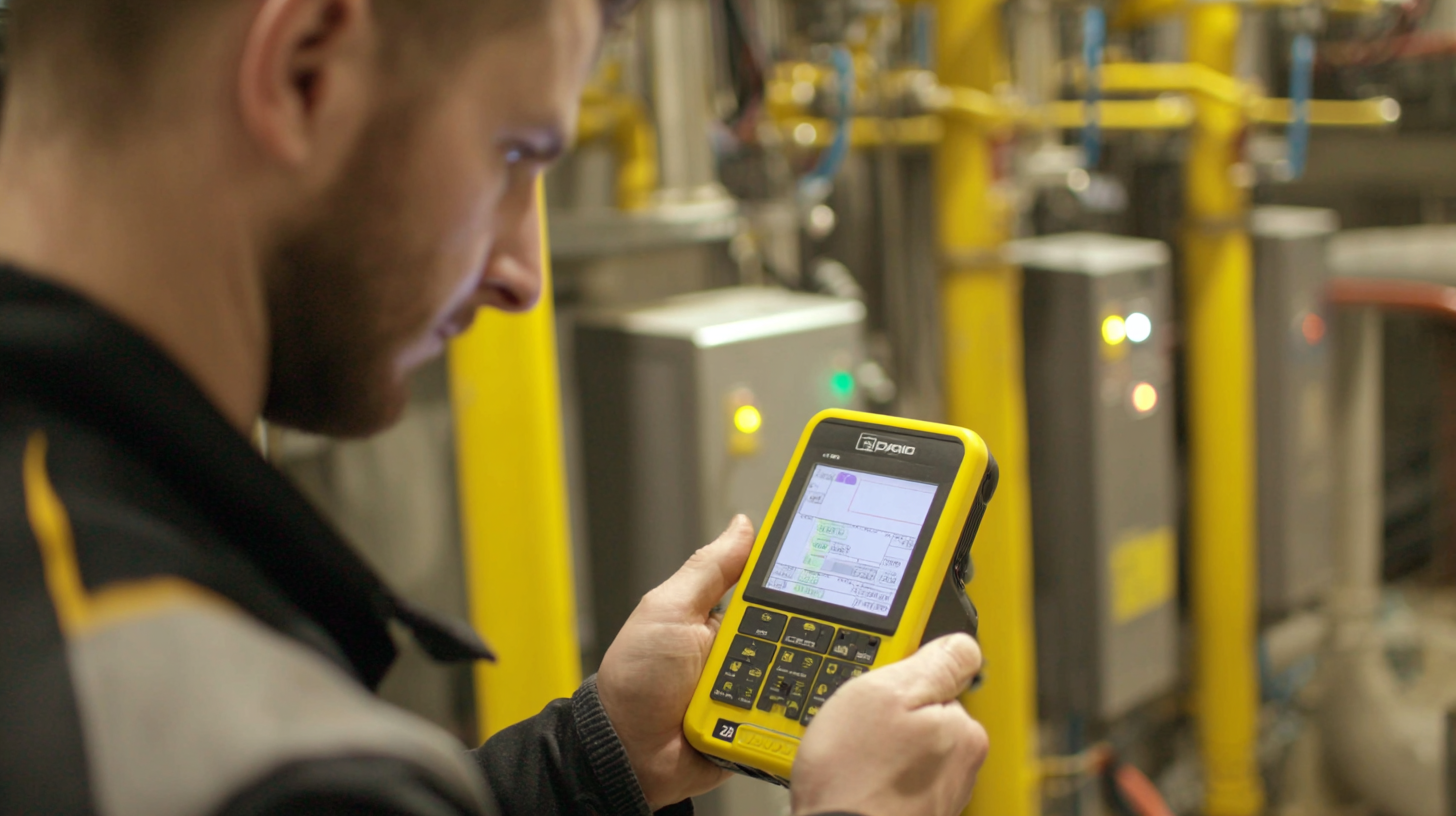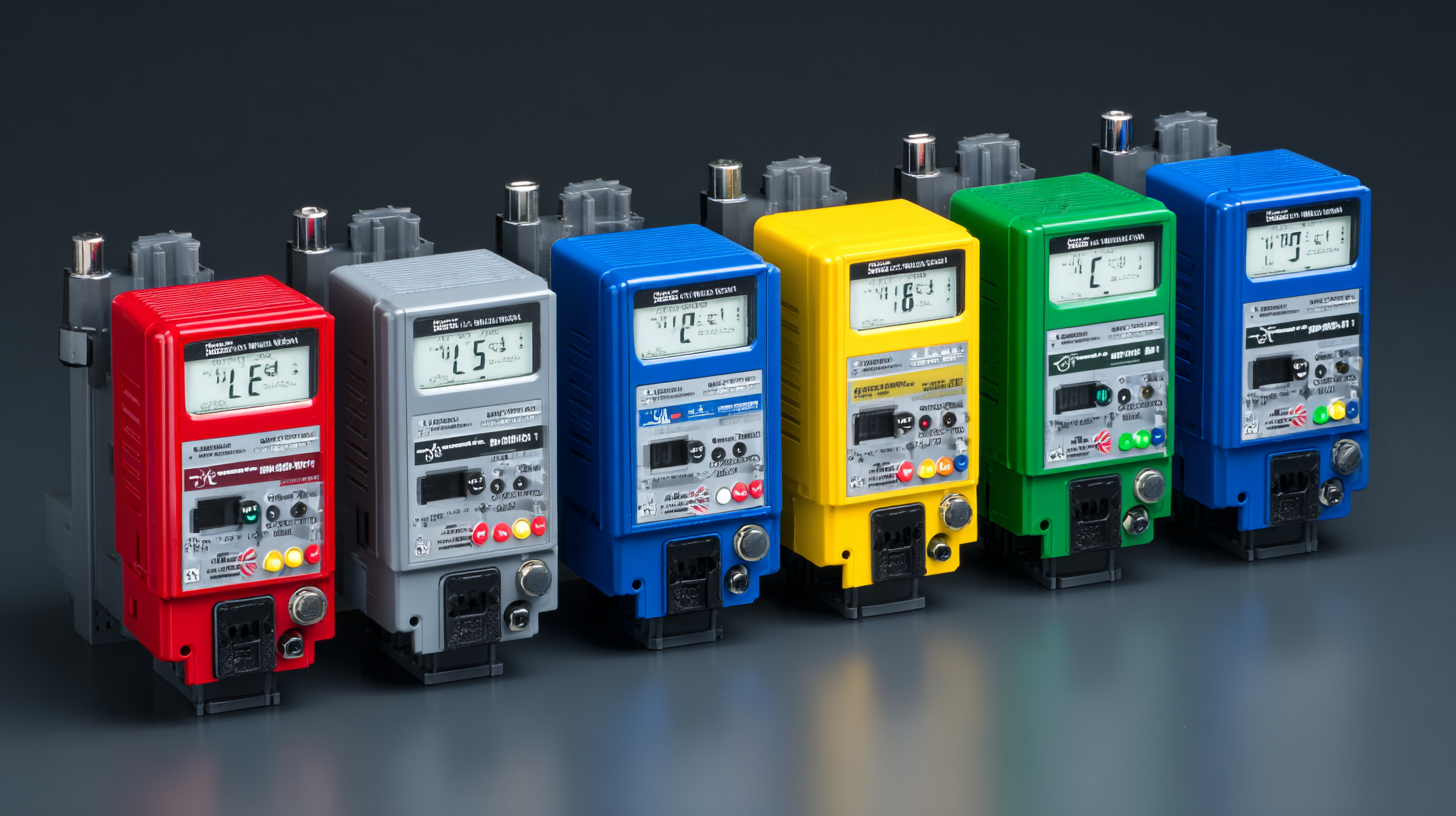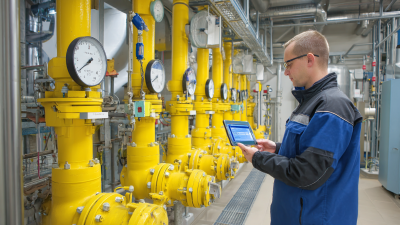7 Expert Tips for Selecting the Best Mag Meter for Your Industry
In today's rapidly evolving industrial landscape, the selection of the right flow measurement instrument is crucial for efficiency and accuracy. As industries increasingly rely on advanced technologies, the global magnetic flow meter (Mag Meter) market is projected to grow significantly, with estimates suggesting a rise from USD 3.8 billion in 2021 to USD 5.5 billion by 2026, at a CAGR of 7.3% (Market Research Future). This trend highlights the necessity for industries to choose the most suitable Mag Meter tailored to their specific applications, whether in water treatment, chemical processing, or food and beverage manufacturing.

With the growing demand for precise flow measurement that minimizes costs and maximizes operational efficiency, understanding how to select a Mag Meter that aligns with unique industry requirements becomes imperative for professionals aiming to enhance their processes and maintain competitive advantages. In this guide, we will outline seven expert tips to help you navigate the selection of the best Mag Meter for your industry.
Identifying Key Industry Requirements for Mag Meter Selection
When selecting a mag meter for your industry, understanding the specific requirements is crucial to ensure optimal performance and longevity. Different sectors, such as food and beverage, wastewater treatment, or chemical processing, have unique characteristics that can significantly impact the choice of mag meter. For instance, the food and beverage industry necessitates compliance with stringent hygiene standards, which means choosing a meter that offers sanitary construction and easy cleaning. Materials of construction and the meter’s ability to handle variations in temperature and pressure are also critical considerations in these settings.
Moreover, the accuracy and range of the mag meter must align with the operational parameters of your industry. For industries dealing with viscous fluids or those with high solids content, selecting a meter that can accurately measure flow without being affected by these variables is essential. Additionally, consider the installation requirements; some industries may require a mag meter that can be easily integrated into existing systems without extensive modifications. By taking these specific industry requirements into account, businesses can ensure they select the most suitable mag meter for their operational needs.

Understanding Different Types of Mag Meters and Their Applications
When selecting a magnetic flow meter, understanding the different types and their specific applications is crucial. Magnetic flow meters, or mag meters, are widely used across various industries such as water treatment, food and beverage, and chemical processing due to their accuracy and reliability in measuring the flow of conductive liquids. According to a recent market report by Global Industry Analysts, the magnetic flow meter market is expected to reach $1.4 billion by 2027, highlighting the growing demand for these devices across all sectors.
One important aspect to consider is the type of lining used in the mag meter, which can significantly affect its performance and compatibility with different fluids. For example, rubber linings are often ideal for wastewater applications, while Teflon linings are suitable for aggressive chemicals. **Tip: Always assess the fluid characteristics, including temperature and chemical compatibility, to ensure the right lining is selected.**
Additionally, the size and design of the mag meter play a critical role in its application. Larger meters are designed for high flow applications and can accommodate more robust pipelines, while smaller meters are better suited for lower flow scenarios typical in lab settings. **Tip: Verify that the meter size aligns with your pipe diameter to maintain optimal accuracy.** By focusing on industry-specific requirements and the type of applications, you can make an informed decision that ensures the longevity and efficiency of your magnetic flow meter.
Different Types of Mag Meters and Their Applications
This bar chart illustrates the percentage of applications of different types of mag meters in various industries. Electromagnetic meters are the most commonly used, accounting for 40% of applications, followed by Coriolis and Ultrasonic meters. Positive Displacement and Turbine meters represent smaller portions of the market.
Evaluating Accuracy and Reliability: Essential Metrics for Industries
When selecting a magnetic flow meter (mag meter) for your industry, evaluating accuracy and reliability is paramount. The performance of a mag meter can significantly impact operational efficiency and product quality. One critical aspect to consider is the fluid's properties. Ensure that the chosen meter is compatible with the specific characteristics of the fluid being measured, including conductivity, temperature, and viscosity. This compatibility will help in achieving precise readings and minimize maintenance issues.
Another essential metric to evaluate is the meter's calibration. A well-calibrated mag meter can ensure consistent and accurate measurements, which is vital in industries like healthcare and pharmaceuticals where regulatory compliance is non-negotiable. It is advisable to check if the manufacturer provides calibration certificates and if there are options for on-site calibration services. Additionally, assess the installation requirements and maintenance of the device, as ease of installation can affect overall reliability.
Choosing the right mag meter also involves evaluating its data output options and integration capabilities with existing systems. A versatile meter that offers various outputs, such as digital and analog, ensures seamless data transmission, which can enhance your operational efficiency. Make sure the device can integrate smoothly with your data management systems for effective monitoring and analysis.
Assessing the Compatibility of Mag Meters with Various Fluids
When selecting a magnetic flow meter (mag meter), it is crucial to assess its compatibility with the specific fluids in your industry. Different fluids exhibit varying electrical properties, which can significantly impact the performance and accuracy of the meter. For instance, a report by the Amercian Chemical Engineering Society indicates that the conductivity of the fluid needs to be above 5 µS/cm to ensure reliable measurements. Fluids like water-based solutions are ideal for mag meters, while low-conductivity fluids such as hydrocarbons pose challenges that must be addressed through careful selection of meter specifications.
Furthermore, the presence of particulates or bubbles in the fluid can also affect measurement accuracy. According to a study by the International Society of Automation, mag meters are particularly recommended for slurry and waste applications because they can handle a wide range of flow conditions without the risk of clogging. However, for industries dealing with complex mixtures, it may be necessary to choose specialized models designed to compensate for any disturbances. Ensuring that the selected mag meter aligns with the characteristics of your specific fluid application is key to achieving optimal measurement reliability and efficiency.
Considering Maintenance and Cost Implications in Mag Meter Choices
When choosing a mag meter for your industry, it’s essential to weigh the maintenance and cost implications. A well-selected mag meter can provide significant long-term savings, but initial cost should not be the only factor. Investing in a higher-quality meter may reduce maintenance frequency and costs over time, as these devices often have better durability and less wear.
One of the key tips is to evaluate the meter's maintenance requirements. Opt for models with self-diagnostic features, as they help identify issues before they escalate, reducing downtime. Additionally, consider the availability of replacement parts and technical support; a readily accessible support network can significantly ease maintenance challenges.
Cost implications extend beyond the initial purchase price. It’s crucial to assess the operational efficiency of the mag meter. A more efficient meter can lead to lower energy costs and reduced waste, translating into overall savings. Look into options that provide advanced features like real-time data analytics, which not only optimize processes but can also minimize costs associated with labor and material handling. By considering both maintenance and cost implications, you can select a mag meter that enhances operational efficiency while protecting your bottom line.

Related Posts
-

Ultimate Guide to Choosing the Best Inline Flow Meter for Your Industrial Needs
-

How to Choose the Right Inline Flow Meter for Your Industrial Applications
-

Ultimate Guide to Understanding Different Flow Meter Types for Your Business Needs
-

Ultimate Guide to Understanding Gas Flow Meter Variations for Optimal Selection
-

Understanding Common Challenges with Magnetic Flow Meters for Global Buyers
-

10 Best Chemical Flow Meters That Improve Accuracy by 95 Percent
